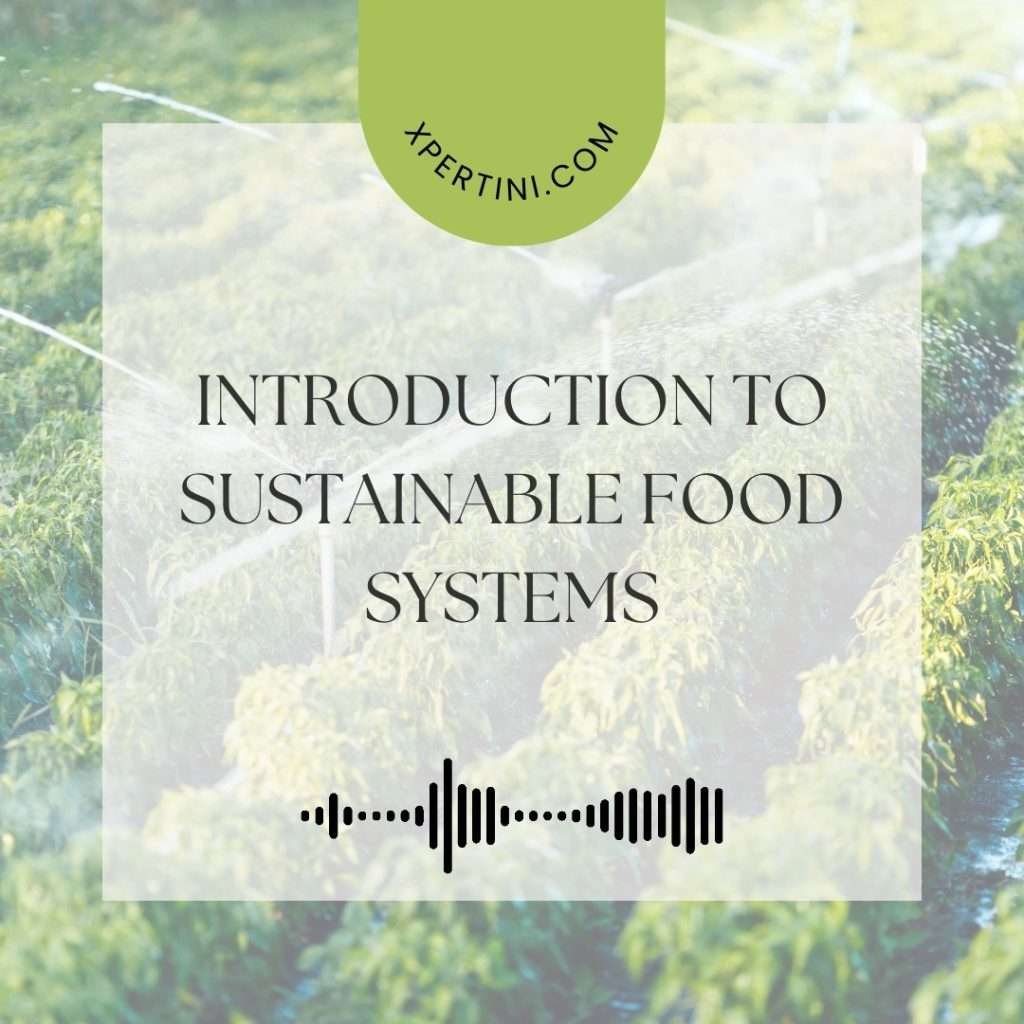Introduction to Sustainable Food Systems
Course Summary
In this comprehensive course on sustainable food systems, learners are introduced to the multifaceted world of food production, distribution, and consumption through a lens of sustainability and environmental stewardship. Throughout the course, students delve into the interplay between agriculture, food technology, policy, consumer behavior, and career opportunities within the realm of sustainable food systems.
The journey begins with an exploration of the fundamental principles underlying sustainable agriculture, emphasizing the importance of adopting practices that promote soil health, biodiversity, and resource efficiency. Learners gain insight into innovative techniques such as precision agriculture and smart farming, which leverage technology to optimize crop yields while minimizing environmental impact.
Moving forward, the course delves into the critical role of policy and governance in shaping food systems at local, national, and international levels. Students examine key initiatives and agreements aimed at enhancing food security, promoting sustainable agricultural practices, and addressing global challenges such as climate change and food insecurity.
An in-depth analysis of consumer behavior and food choices uncovers the psychological factors influencing dietary decisions and explores strategies for promoting sustainable diets and raising consumer awareness.
The course also highlights the vast array of career opportunities available in the field of sustainable food systems, from agricultural production and food processing to policy advocacy and research. By identifying the skills and qualifications required for various roles, students are empowered to pursue meaningful careers aligned with their interests and aspirations.
Throughout the course, emphasis is placed on critical thinking, problem-solving, and effective communication skills essential for navigating the complex landscape of sustainable food systems. By fostering a deep understanding of the interconnectedness between food, society, and the environment, this course equips learners with the knowledge and tools needed to become agents of change in creating a more sustainable future for all.
Course Overview
This course provides an in-depth exploration of sustainable food systems, focusing on their significance in addressing global food security, environmental conservation, and human health. Participants will gain a comprehensive understanding of the principles, practices, and challenges associated with sustainable food production, distribution, and consumption.
Course Objectives
- Understand the concept of sustainable food systems and its importance.
- Identify key components of sustainable food systems.
- Analyze the environmental, social, and economic impacts of conventional food systems.
- Evaluate strategies for promoting sustainability in food production, distribution, and consumption.
- Explore innovative technologies and practices for enhancing sustainability in food systems.
- Examine the role of policy, governance, and advocacy in advancing sustainable food systems.
- Critically assess challenges and barriers to implementing sustainable food systems.
- Engage in discussions on ethical considerations and social justice issues related to food systems.
- Apply knowledge and skills to propose solutions for enhancing sustainability in food systems.
- Prepare for potential career opportunities in the field of sustainable food systems.
Course Outcomes
- Define the concept of sustainable food systems.
- Identify the environmental impacts of conventional food production.
- Analyze the social and economic factors influencing food systems.
- Evaluate the effectiveness of sustainable agriculture practices.
- Propose strategies for reducing food waste and enhancing food security.
- Discuss the ethical considerations in food production and consumption.
- Apply systems thinking to analyze food systems.
- Critique policies and regulations affecting food sustainability.
- Collaborate effectively in group projects related to sustainable food systems.
- Develop a career plan in the field of sustainable food systems.
Course Audience
- Students pursuing degrees in environmental science, agriculture, or related fields.
- Professionals working in food production, agriculture, or environmental sustainability.
- Individuals interested in exploring career opportunities in sustainable food systems.
- Advocates and policymakers seeking to deepen their understanding of food sustainability issues.

